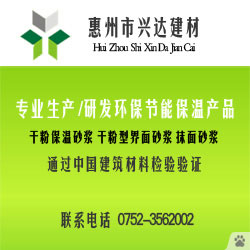Alfabeto e Pronuncia from www.cyberitalian.com
luyued 发布于 2011-01-13 22:01 浏览 N 次http://www.cyberitalian.com/en/html/alphabet.html
The Italian alphabet has 21 letters.
A, E, I, O, U are called "vowels". The others are called "consonants".
These are foreign letters (rarely used in Italian):
These are consonants combined with a vowel or with another consonant. They have a special pronunciation:
Italian words end with a vowel (except words of foreign origin - e.g. sport, film, yogurt...):
- armadio (wardrobe, closet)
- lampada (lamp)
The vowels and the diphtongs (combination of vowels) are clearly articulated:
- noioso, noiosa (boring)
- piede (foot)
Most Italian words have the stress on the next-to-last syllable:
burattino (puppet)
lavorare (to work)
However, there are many exceptions to this rule and, since the stress is not indicated by a written accent, the only way to learn the correct pronunciation is by listening, memorizing and practicing:
leggere (to read)
frigorifero (refridgerator)
Some words have the stress on the final vowel; they require a written accent:
caffè (coffee)
attività (activity)
In a sentence, the stress usually falls on the last word, and the pitch of the voice drops at the end of the sentence:
- Pinocchio è italiano. (Pinocchio is Italian.)
A question is expressed with a rising intonation:
Pinocchio è italiano? (Is Pinocchio Italian?)
Double consonants must be pronounced. When you pronounce a double consonant, just extend the sound while holding the breath for a moment:
- ballare (to dance)
- ginnastica (gymnastics)
Double consonants are very important because they differentiate words. E.g. "rosa" (pink) "rossa" (red).
Certain words have a double consonant only for the "sake of the music" (you know Italian language is very musical). This happens usually when:
- two words combine (e.g. chi + sa = chissà). Some of these words are: sebbene, fabbisogno, seppure, dammi, fammi, dimmi...
- words start with "sopra, contro": soprattutto, sopralluogo, soprannome, sopravvivere, contraddire...
- words start with the prepositions "a, da, fra, su": allo, addosso, davvero, dapprima, frattanto...
- words start with the conjunctions "e, o, né": eppure, oppure, nemmeno, neppure...
Words that do NOT require a double consonant are:
- ending with "zione" (azione, meditazione, lezione...)
- starting with "intra" (intravedere, intramuscolo...)
Of course, we always have exceptions. If you are not sure if an Italian word has a double consonant, check the dictionary and use our pronunciation guide.
MSN空间完美搬家到新浪博客!
- 07-01· 禁教唐诗算术能还幼儿快
- 07-01· 2011年06月17日
- 07-01· 唐诗宋词英译:李商隐 筹
- 07-01· 仿评《唐诗1000首》第186首
- 07-01· 没事干的时候背背唐诗吧
- 07-01· [转载]唐诗中“斜”字该读
- 07-01· 湖南醴陵瓷业转型升级
- 07-01· 奇瑞风云2两厢黑色|2010款
- 07-01· 摩根士丹利华鑫摩根士丹
- 07-01· 摩根士丹利华鑫近期优选
- 07-01· 中金投行部大摩出售中金
- 07-01· 摩根士丹利招聘6月2日【实
- 07-01· 营养防病圣典
- 07-01· 《博伽梵歌原意》之第十
- 07-01· [不错]斑斓圣典---减肥中常
- 07-01· 武乐圣典《太极武当》:武
- 07-01· 铁血英雄-现阶段战功牌兑
- 07-01· 2011年06月10日【原创】南歌
- 07-01· 【淘宝网信息】- 2010年的
- 07-01· 深圳品牌女装有哪些?





